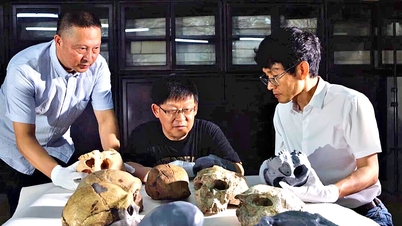An Artificial Intelligence (AI) application platform model called EyeFM could open up new prospects in eye care worldwide, according to international research led by Chinese scientists and published in the journal Nature Medicine.
EyeFM was created by China's Tsinghua University and Shanghai Jiao Tong University in collaboration with international collaborators.
This is an AI system trained on 14.5 million ophthalmological images and medical records from multi-ethnic datasets around the world. A total of 44 ophthalmologists from China, India, Malaysia, Denmark, Equatorial Guinea and the US confirmed the effectiveness of the program.
In double-blind and single-blind trials of 668 high-risk patients in China, 16 ophthalmologists were randomly assigned to use EyeFM or conventional diagnostic methods for retinal disease.
Preliminary analysis showed that EyeFM increased diagnostic accuracy to 92.2% compared with 75.4% in the control group.
The researchers also added a “physician feedback” feature to EyeFM to increase the accuracy of the system.
The “doctor feedback” feature allows doctors to provide expert feedback, helping AI-powered healthcare systems learn and improve over time. Therefore, EyeFM can be used in both low-resource clinics and specialized eye hospitals.
Similar AI tools have traditionally learned from only one type of data, so they can’t handle as much diversity as doctors. They often only examine old records and aren’t pretested in a variety of settings and conditions. Few have been put through randomized trials, and few studies have looked at collaboration between doctors and AI.
This study provides evidence that large medical AI models can support both primary and specialty care, thereby turning AI into an effective tool for everyday clinical practice./.
Source: https://www.vietnamplus.vn/mo-hinh-ai-co-the-mo-ra-trien-vong-moi-trong-viec-cham-soc-mat-post1059891.vnp




![[Photo] Prime Minister Pham Minh Chinh chairs meeting to deploy overcoming consequences of storm No. 10](https://vphoto.vietnam.vn/thumb/1200x675/vietnam/resource/IMAGE/2025/10/3/544f420dcc844463898fcbef46247d16)

![[Photo] Students of Binh Minh Primary School enjoy the full moon festival, receiving the joys of childhood](https://vphoto.vietnam.vn/thumb/1200x675/vietnam/resource/IMAGE/2025/10/3/8cf8abef22fe4471be400a818912cb85)


































































































Comment (0)